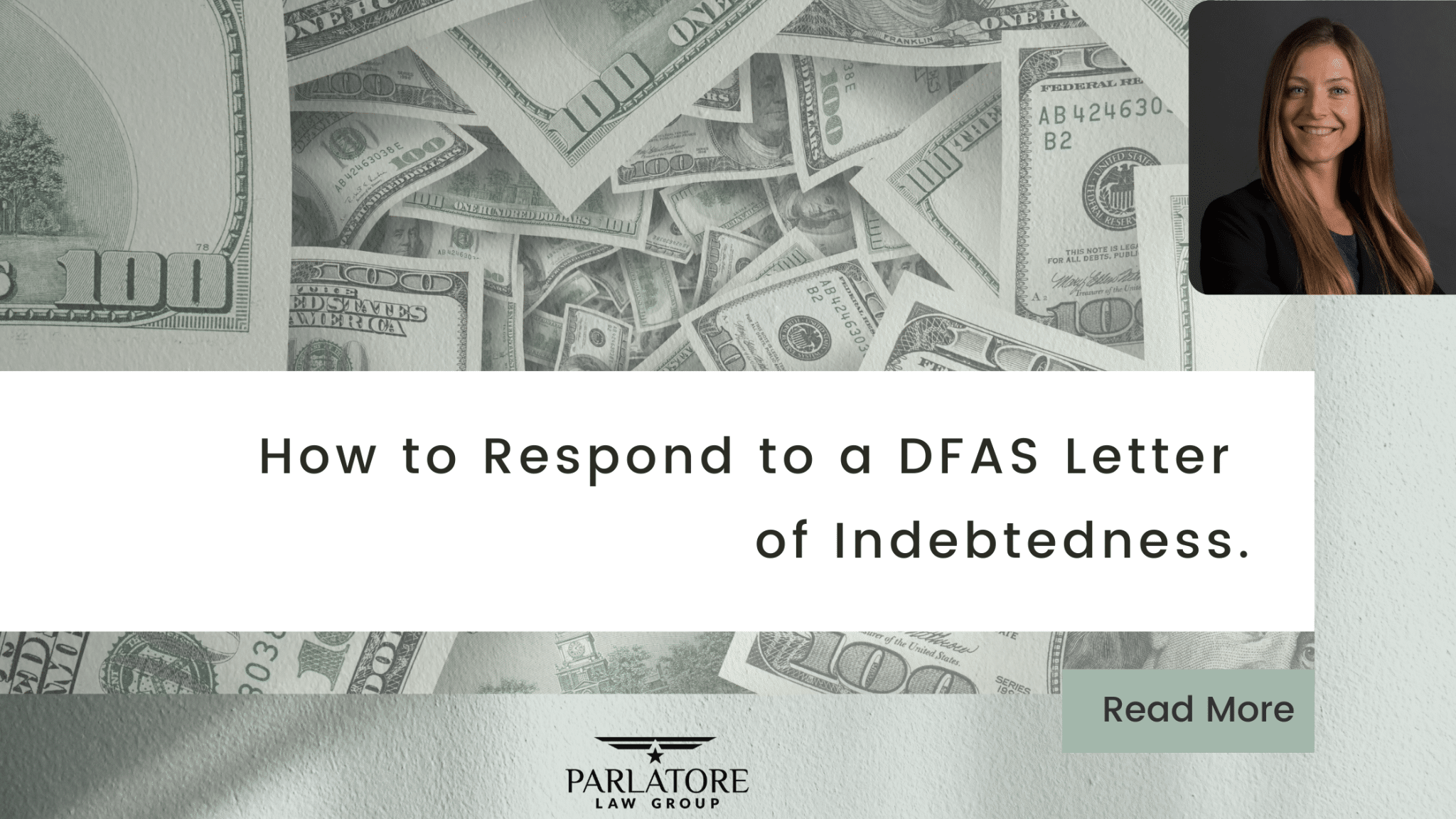Understanding military pay entitlements can be tricky. It’s common not to know exactly how much to expect in your next paycheck, especially with changes like a new duty station or deployment. But what happens if the military mistakenly pays you more than they owe? You have to pay it back! The Defense Finance and Accounting Services (DFAS) will send you a Letter of Indebtedness, informing you of the amount you owe due to the government’s error. So, what can you do? You have a few options:
Disputing the Debt
If you believe DFAS is wrong and the payment was not made in error, you can dispute the debt. The process for disputing the debt varies based on where the debt originated. While your dispute is pending, you still need to make monthly payments. Otherwise, your account could be referred to a private collection agency or for involuntary offset.
Requesting a Waiver
If you realize the government is correct and you were paid in error, you can acknowledge the debt and request a waiver. According to federal statute 10 U.S.C. § 2774, the government can waive its claim to erroneous payments of pay and allowances if collection would be against equity and good conscience and not in the best interests of the United States, provided there is no evidence of fraud, fault, misrepresentation, or lack of good faith on your part. In other words, if it would be unfair.
The government has applied these criteria to find that a waiver is not appropriate if you had reason to know of or suspect an overpayment. Whether or not you had any such reason depends on the facts of your specific situation. In this regard, it is important to know that the government is not bound by the statements or actions of its employees. This means that even if someone “official” told you the payment was correct, you were not entitled to rely on them. However, having documentation of advice you received may help you prove that you acted in good faith.
Setting Up a Payment Plan
A third option is to set up a payment plan for repaying the debt owed. This can help manage the financial burden over time.
Consequences of Government Errors
The consequences of a government error can be huge and devastating for the affected service member or civilian employee. Here’s an example to illustrate how the system may work:
I had a client who accepted a civilian position overseas and was granted a monthly living quarters allowance (LQA). Several years later, the Navy conducted an audit of certain LQA accounts. The audit was supposed to be concluded within 90 days, and all individuals found to be receiving LQA erroneously would be notified within 5 days after the audit’s conclusion. My client was not notified of the audit’s results, which concluded that he was not entitled to LQA, until more than 2 ½ years later. During this time, he continued to receive and spend the LQA on housing for himself and his family. As a result, DFAS sent him a letter of indebtedness for all the LQA he had received over approximately 5 years, totaling more than $200,000!
I believed the client had grounds to contest the validity of the debt, but he was advised by HR officials in his office that if he accepted the debt and requested a waiver, the debt would be waived and he would not have to pay anything. Unfortunately, that advice was unsound: his waiver was denied. At that point, he retained legal representation, and I was able to help him eliminate more than half of the debt, up to the point where he received notification of the audit. The Claims Appeal Board concluded that my client was alerted to a potential error in his LQA payment when he was notified that his account was subject to an audit. From that point on, he had a duty to set aside the payments. Thus, the government found it was not against equity and good conscience to require him to repay the LQA payments received after he was notified of the audit.
Key Takeaways
- Question Potential Overpayments: If you think the military may be overpaying you, don’t gratefully accept the windfall. Obtain assurances in writing that the payment is correct if you have reason to question it. This could protect you later on.
- Seek Legal Advice: Consider speaking with an attorney right away if you receive a notice of indebtedness before deciding whether to accept the debt and request a waiver. This can make all the difference in how you frame your request or whether you decide to contest it and set forth your legal right to the payments instead.
- Document Everything: Keep detailed records of all communications and advice received regarding your pay and allowances. Written documentation can be crucial in proving your case if you need to dispute a debt or request a waiver.
By understanding your options and taking proactive steps, you can better navigate the complexities of military pay and avoid the potentially devastating consequences of overpayments.
Author
-

Elizabeth Candelario is a partner with Parlatore Law Group who focuses on administrative law issues, aviation, and lobbying compliance. She brings her significant breadth of experience, knowledge base, and enthusiasm to each issue she tackles, whether it is providing guidance and advice, regulatory interpretation, or crafting an argument. Her thorough analysis and focus on the unique circumstances and legal nuance of each case make Ms. Candelario a zealous appellate advocate.
View all posts


